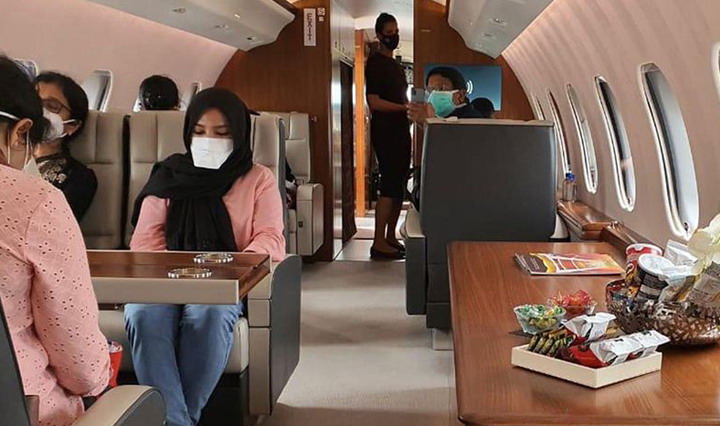Individual country travel status can change quickly, and we understand how difficult it is to remain on top of everything. That’s why we’re gathering the information you’ll need to make trip plans.
Learn about the border status, COVID-19 testing requirements, and quarantine rules for each nation. Many countries are reopening their borders to foreign travel.
Find out the latest travel guidelines as per COVID regulations and restrictions.
UK
The United Kingdom recently reopened for international tourism on May 17, 2021. England, Scotland, Wales, and Northern Ireland are the four countries that have their own set of rules.
Visitors entering the UK are subject to a traffic light system, although the rules vary depending on which country you are visiting. Travelers from countries on the green list must show documentation of a negative COVID-19 test result acquired within three days of departure and fill out an online passenger locator form within 48 hours of landing in England/Scotland.
Travelers from countries on the amber list must present a negative COVID-19 test result obtained within three days of departure, complete a digital passenger locator form within 48 hours of arrival in England/Scotland, and book and pay for two COVID-19 tests, one on day two after arrival and the other on day eight.
Travelers from countries on the red list must meet all of the same entry requirements as travelers from countries on the amber list, with the exception of booking and paying for a quarantined hotel where they will spend their 10-day quarantine. Only British and Irish nationals and residents are permitted to enter the UK from countries on the red list.
The nations on Wales’ green, amber, and red lists have the same entrance restrictions as those on the green, amber, and red lists, except visitors from the red list, cannot go directly to Wales. They must proceed to Wales after arriving in either England or Scotland, completing their 10-day quarantine.
Within 48 hours of landing in the UK, all visitors must complete an online passenger locator form. They must also show documentation of a COVID-19 test result that was negative within three days of their departure.
Travelers from countries on the green list must schedule and pay for a COVID-19 test on their second day in England, Scotland, or Wales.
Travelers from countries on the amber list must book and pay for two COVID-19 tests, one on day 2 and the other on day 8, after arriving in the UK. They must also quarantine for ten days after arriving at their residence.
Travelers from red-listed countries must plan and pay for a quarantine accommodation package that includes testing on days 2 and 8. They will stay at the quarantine hotel for ten days and take their supplementary COVID-19 tests on days two and eight.
US
Instead of closing its borders completely to foreign travel, the US restricted travel from certain nations and temporarily halted tourist visa processing. Tourist visa processing has restarted, and the United States is now open to visitors from all nations except China, Iran, the European Schengen Area, the United Kingdom, Ireland, Brazil, India, and South Africa.
All travelers must have documentation of a negative COVID-19 NAAT or antigen test within 3 days of departure or proof of COVID-19 recovery within the previous 90 days. In addition, they must fill out an attestation form.
Even with a negative test result, the CDC recommends that passengers get tested 3 to 5 days after trip and self-quarantine for 7 days following travel, however, states may have their own admission criteria for travelers.
UAE
A medical certificate for a negative PCR test result acquired within 72 hours of departure for Dubai is required for travelers arriving in Dubai. They must also obtain COVID-19 travel insurance and download the COVID-19 – DXB Smart App.
If your country is on this list of “green” countries, your entry criteria for Abu Dhabi are different. A negative PCR test result acquired within 96 hours of departure is required for travelers from “green” nations. When they arrive, they’ll take a second PCR test and then self-isolate until they get a negative result. If the test results are negative, they are not required to quarantine.
Travelers from “green” nations will take another PCR test on the 6th day of their trip if they are staying for 6 days or longer, and a PCR test on the 12th day of their trip if they are staying for 12 days or more.
All other international travelers must produce a negative PCR test result obtained 48, 72, or 96 hours prior to departure, depending on where they are flying from. On arrival, they will take a second PCR test and register with the quarantine system. After that, travelers will be handed a wristband that they must wear for the duration of their 10-day quarantine.
If passengers from non-“green” nations are staying for 6 days or more, they must undergo a third PCR test on the 6th day and a fourth PCR test on the 12th day.
A negative PCR test result acquired within 96 hours of arrival is required for travelers arriving in Sharjah. They must also have travel health insurance, have downloaded the ALHOSN app, and have a UAE cellphone number for PCR tracking. They will be subjected to another PCR test upon arrival and will be required to self-isolate until the results of that test are received. If the test comes out negative, tourists will be able to travel.
In order to fly back home, your country may require you to take a PCR test. If you require a PCR test in the United Arab Emirates, please contact us.
Singapore
Singapore has made significant progress in controlling the COVID-19 situation, taking the required steps to ensure that visitors arrive securely.
In the middle of the COVID-19 outbreak, Singapore has created international Safe Travel Lanes to ease travel in and out of the country while protecting public health.
Singapore citizens and permanent residents may return to Singapore without obtaining entrance authorization from any country or territory.
However, based on their prior travel history to various countries/regions before landing in Singapore, they will be subject to current travel health precautions.
Thailand
Thailand is one of the tourist-friendly countries, but it also has some of the most stringent rules. Unless they qualify for the Visa Exemption Scheme, tourists must first have a valid visa. They must apply for a Certificate of Entry once their visa has been approved.
Tourists must also show a medical certificate for a negative RT-PCR test acquired within 72 hours of departure, proof of COVID-19 travel insurance coverage of above USD 100,000, and a reservation number for certified lodging, such as an Alternative State Quarantine facility. This is where they’ll spend the next 14 days of their obligatory quarantine.
Tourists must also show a medical certificate for a negative RT-PCR test acquired within 72 hours of departure, proof of COVID-19 travel insurance coverage of above USD 100,000, and a reservation number for certified lodging, such as an Alternative State Quarantine facility. This is where they’ll spend the next 14 days of their obligatory quarantine.
Non-Thai nationals must quarantine for 14 days at their own expense after arriving in Thailand. They must spend the entire 14-day quarantine period at an Alternative State Quarantine facility, which is why they must have confirmation of a reservation at an Alternative State Quarantine facility before entering Thailand.
Maldives
Tourists from all countries are welcome, and the admission procedures are simple, making it one of the greatest countries for tourism.
Within 24 hours before their departure, all travelers must complete an online Traveler Health Declaration form and download the Trace Ekee contact tracing app.
Travelers who have been fully vaccinated are free from entrance procedures and quarantine if they update proof of full immunization as part of their Traveler Health Declaration form.
All other passengers must show documentation of a negative PCR test result acquired within 96 hours of leaving the first port of embarkation on their way to the Maldives.
This restriction does not apply to children under the age of one, Maldivian nationals and residents, or fully vaccinated travelers.
Tourists’ PCR tests will still be valid if they transit through another nation on their way to the Maldives, as long as their transit does not exceed 24 hours. If their transit time is longer than 24 hours, they will be required to do a second PCR test before arriving.
EU Region
A medical certificate for a negative PCR test result received within 3 days of arrival in Russia is required for international passengers. They must also fill out the document given to them on their journey to Russia and have travel medical insurance for the duration of their stay.
Travelers arriving from Armenia, Belarus, Kazakhstan, and Kyrgyzstan must use the COVID-19 Free Travel app to present their negative PCR test results. Russian citizens must fill out this form ahead of time and then fill out the form supplied to them on their journey to Russia.
It is now not possible to travel to Germany for the purpose of tourism. Many countries’ citizens can only visit Germany for medical reasons, German hotels do not allow tourists to remain overnight, and some German neighborhoods do not accept outside visitors.
The requirements for entry vary depending on the nation from which you are traveling. Travelers from the EU, the Schengen Area, and other nations are free to enter Germany.
Within 48 hours of arriving in Germany, travelers from the EU and Schengen Area’s “high incidence areas” must register online and show documentation of a negative COVID-19 test result. They’ll also have to stay in quarantine for ten days after arriving in Germany.
Before arriving in Spain, all visitors must complete an electronic Health Control Form. The form is available on the Spain Travel Health website or as an Android/iOS app. Travelers will receive a QR code after completing the form, which they must present upon arrival in Spain. Each traveler is responsible for filling out their own form.
France is one of the countries that is open to tourism, although there are a lot of restrictions. All visitors arriving in France must show documentation of a COVID-19 PCR test result obtained less than 72 hours before departure.
They must also provide a sworn declaration that they do not have COVID-19, that they have had no contact with anyone who has COVID-19, and that they consent to a PCR test when they arrive in France.
Travelers from approved countries outside of Europe must self-isolate for 7 days after arriving in France and do a second PCR test on the 7th day.
Travelers who are not from one of the allowed nations are only permitted to visit France if they have a valid visa.
So Are Your Ready To Travel?
The above are the countries that are currently open for tourism, though the list may change as the COVID situation evolves. If anything changes, we’ll update the list.
If you have any queries concerning a certain country, please leave a comment and we will do our best to assist you.


